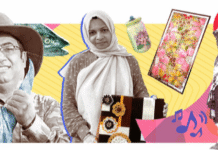Mubashar Hasan
Liberal Bangladesh’s only hope now is the rock and roll that still connects with millions
Even though Bangladesh is the world’s fourth largest Muslim majority country, its society has been largely liberal for Bangladeshi standards. However, in recent years, the pattern of Bangladeshi society has been changing rapidly. It is becoming illiberal day by day, a worrisome trend of the radicalisation of Bangladesh was recorded by Gallup and the Washington-based Pew Research from a series of research studies conducted between 2006-2013. These research organisations found that the influence of hardcore Wahabi and Salafi culture radicalised a large section of Bangladeshi youths through diverse mediums of globalisation.
So-called secularists, by contrast, lost the plot for their vision of a secular Bangladesh a long time ago due to their closed-up and peculiar intellectual activism that does not appeal to most cosmopolitan Bangladeshi youths. Tagore fundamentalists, on the other hand, instead of promoting the free spirit of Tagore, constructed a puritan saint image of Tagore, which in reality alienated many youths from exploring his humanist philosophy.
Against this backdrop, rock and roll in Bangladesh has been able to sustain its appeal to millions of youths. Since the 80s, various rock bands were followed by millions of young listeners. Hundreds of powerful political songs were produced featuring the corruption of the society, religious militancy, the pseudo nature of our democracy. Some songs rejoiced in the greatness of our national heroes whereas some very popular songs openly talked about various aspects of the relationships between men and women. In short, they promoted openness and liberalism, in Bangladeshi style.
Most importantly, some of the big bands were able to shape the lifestyles of their followers. Lifestyle or the way of living is a manifestation of a society’s worldview. Most avid rock and roll followers are liberal in the sense that they do not accept fanaticism of any kind. This is the most important point that Bangladeshi policymakers, academicians, and politicians seem to miss.
My study of the philosophy of the socio-cultural development of the Bangladesh government reveals that the state has ignored sponsoring the growth of this genre of music. All governments, irrespective of AL or BNP, perhaps rightfully prioritised investing in promotion of both religious and Bengali culture. This pattern of investment only confirms that the state of Bangladesh wants to define a moderate society celebrating both religious and ethnic culture of Bengalis. The discursive cultural penetrations from the Middle East and India, through agencies of globalisation, however, have unsettled this moderate societal nature.
Liberal Bangladesh’s only hope now is the rock and roll that still connects with millions. Regrettably though, due to the lack of support in relation to the protection of intellectual rights of the artists, foul play by some music producing companies who sell mp3s in the black market, and the state’s total disregard to the promise of this genre of music are slowly pushing this musical terrain into a corner.
Lack of creativity within the Bangladeshi research community too is a reason to blame for the lack of understanding of the promise of rock and roll in shaping Bangladesh’s liberal identity. In relation to the latter, a noteworthy anecdotal example is that when I was an undergrad student at the Department of Mass Communication and Journalism in Dhaka University, our teachers, who rightfully encouraged us to listen to Tagore songs and who taught us American pop culture, never encouraged us to explore Bangladeshi pop culture as a research terrain. One of those respected teachers recently said to me that they don’t understand Bangladeshi rock and roll even though they have seen the euphoric passion among youths.
This problem of not understanding Bangladeshi rock and roll is not only endemic among our intellectuals but also persists among our cultural policymakers, some of whom even play the role of cultural policemen. Their most hypocritical approach to this music is that they are not ready to legitimise rock and roll as part of Bengali culture even though Melai Jai Re, the iconic song to mark the first day of the Bengali new year, became the brand of Bengali new year celebrations among people.
As a whole, after 42 years of independence, rock and roll does not exist in our country in the sense that there is no mention about it in school textbooks (ironically one of the former vocals of the band Black is the son-in-law of the education minister). There is no recognition about it through Bangla academy research, music departments of state universities do not teach rock and roll, rock musicians were not seen to play in any major state event even though the former president of India, Pranab Mukharjee, invited LRB to play at the president’s house.
A generational conflict is a core reason behind such an outrageous approach of ignoring this powerful and popular culture of Bangladesh. The state, the civil society, and our unimaginative research community collectively made rock and roll a bastard child of Bengali culture. Rock and roll exists in reality but does not exist in record. The ultimate loss however is for Bangladesh and to those traditional cultural policemen who are slowly losing ground to a radical Bangladesh.
The power of this culture is enormous because it is supported by youths who presently constitute over 60% of Bangladesh’s total population. It is the youth that change the social landscape. Rock and roll changed America in the 60s. It sure could change Bangladesh, but to make it happen the state should embark in formulating a creative cultural policy in collaboration with the Ministry of Culture, the Planning Commission, and the Ministry of Education. Bangladesh’s new generation of young bureaucrats may play a constructive role in this regard.
Source: Dhaka Tribune










